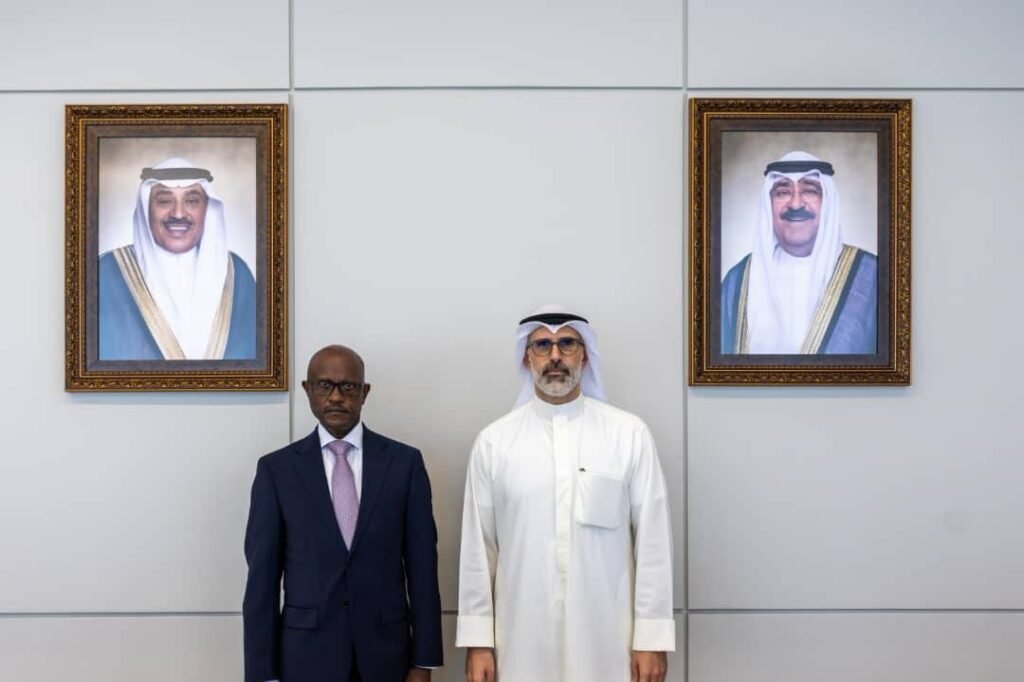The Ethio–Kuwait Political Consultation Meeting was held in Kuwait City on Thursday (October 16), co-chaired by Ambassador Hadera Abera, State Minister of Foreign Affairs of Ethiopia, and Sheikh Jarrah Jaber Al-Ahmad Al-Sabah, Deputy Minister of Foreign Affairs of Kuwait.
In his opening remarks, Ambassador Hadera highlighted the consultation as a significant milestone in the two nations’ relations. He emphasized their shared commitment to strengthen bilateral ties across multiple sectors and deepen cooperation on regional and international issues of mutual interest. Acknowledging the long-standing friendship between Ethiopia and Kuwait, he noted specific opportunities for expanded collaboration in trade, investment, tourism, manufacturing, agriculture, energy, mining, ICT, and culture.
For his part, Sheikh Jarrah Jaber Al-Ahmad Al-Sabah reaffirmed Kuwait’s commitment to transforming its historic friendship with Ethiopia into concrete economic partnerships. Recalling the establishment of diplomatic relations in 1967, he reaffirmed Kuwait’s continued support for Ethiopia’s economic development endeavors.
Both sides reviewed the status of their long-standing ties and discussed ways to enhance cooperation further. They expressed satisfaction with the current level of engagement and underscored the importance of regular high-level visits and political consultations. In this regard, they agreed to establish a Joint Ministerial Commission to elevate the bilateral consultation platform.
The delegations also discussed the implementation of existing agreements and Memoranda of Understanding (MoUs), recognizing the need to form a Joint Steering Committee to monitor implementation, review progress, and identify new areas of collaboration, as outlined in the 2007 agreement. Both parties committed to expediting the signing of pending agreements and MoUs.
On economic cooperation, the two sides emphasized enhancing trade and investment ties. They agreed to activate mechanisms for joint business and investment forums and welcomed the signing of an MoU between their Chambers of Commerce to promote business linkages and explore new opportunities. They also noted the potential for collaboration in agriculture, energy, and infrastructure, with plans to exchange business proposals and organize pre-investment visits by business delegations.
Regarding social and cultural cooperation, both parties acknowledged the importance of collaboration between their diplomatic institutes and agreed to facilitate a partnership arrangement to promote the exchange of training and expertise.
The delegations also exchanged views on regional peace and security, reiterating their commitment to strengthening cooperation within multilateral forums to address common challenges such as counter-terrorism.
Both sides affirmed their readiness to implement the outcomes of the Joint Political Consultation and agreed to hold the second round of consultations in Addis Ababa in 2027, in line with the 2009 MoU on Conducting Bilateral Consultations, to further solidify the partnership.
During his visit, Ambassador Hadera paid a courtesy call on Abdullah Ali Abdullah Elihya, Minister of Foreign Affairs of Kuwait. The Foreign Minister reaffirmed Kuwait’s interest in deepening relations with Ethiopia and encouraged closer collaboration between the two countries’ Chambers of Commerce. Ambassador Hadera also conveyed a message from Gedion Timothewos, Minister of Foreign Affairs of Ethiopia, reiterating Ethiopia’s commitment to advancing its ties with Kuwait.
Additionally, Ambassador Hadera met with Rabah Abdulrahman Al-Rabah, Minister of Oil; Rasheed Ali Al-Bader, Deputy Director General of the Kuwait Development Fund; the Director General of the Kuwait Chamber of Commerce and Industry; and representatives of major investment companies. He briefed officials on investment and trade opportunities in Ethiopia, highlighting priority sectors, regulatory improvements, and the country’s investor-friendly business environment. He also encouraged Kuwaiti investors to explore Ethiopia’s emerging sectors for mutually beneficial partnerships.

